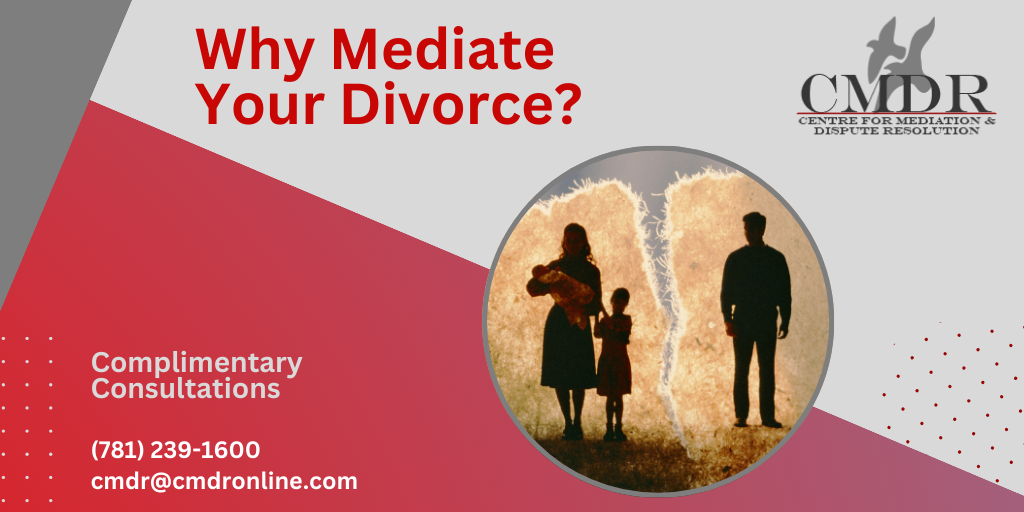
Given the horror stories that abound in the media, portraying combatant litigants dependent upon judicial rulings to reach a settlement, it would seem as if the majority of divorcing couples would embrace mediation as the venue of choice. Yet this is not the case. Individuals are often dissuaded by well-meaning family and friends, who argue that legal muscle and know-how is the way to ensure victory. And, too, let us not forget the divorce lawyers who caution prospective clients to avoid the pitfalls of mediation. Listen, they say, “Your case is too difficult; your spouse is too difficult; your finances are too complex.” In short, the message is clear “avoid the mediation route.”
After decades of working with divorcing couples, some of whom entered mediation against the advice of family, friends, and advisors, it is clear to me that mediation is not a forum for the few—for those without finances, without children, without great communication skills. Indeed, the vast majority of couples are capable of, and would benefit from, mediation.
I have often marveled at the capacity of divorcing couples to craft agreements that are responsive to each one’s needs and concerns and to the family’s long-term welfare. In spite of the fears, anger, and insecurities that couples carry into the process, their ability to “get to yes” is to be applauded. And, not just any “yes” should be the goal; the “yes” must be grounded in the law and based on an understanding of financial resources and needs, as well as the present and future implications of their choices.
I am here to tell you that mediation does work. Not only does the process result in settlements that are lasting and sensitive to subtle and major changes over time, but the end product—the actual agreement—reflects the uniqueness of each family unit.
Here is a bit of inside information for approaching mediation:
•A successful settlement is never built on one party being victorious and the other vanquished. A good agreement is always crafted on the premise that both parties will benefit if both parties do well. Even from the most self-centered perspective, you will fare better if the welfare of all family members is the operative goal.
•Each participant’s knowledge of his/her partner is an important factor in generating ideas and analyzing solution strategies. No matter how insightful your mediator or lawyer, he/she will never know your partner as well as do you. Your “inside” knowledge of your partner’s needs, fears, abilities, and priorities is key ingredient to devising proposals.
•Think of tomorrow as well as today. Your agreement should be responsive to change by providing realistic avenues for dealing with future events without having to resort to legal intervention. We all know that life is not predictable. Why should your agreement assume the status quo? Expect change and prepare for it.
•Select a mediator who is willing and able to help you compile data and generate options by thinking “in” and “out-of-the box.” The mediator should not be a scribe, depending upon you, as the couple, to consider alternatives. The mediator should not offer you only the standard approaches to dealing with issues. Your mediator should facilitate the conversation and participate in the analysis of issues.
•Select a mediator with experience, with knowledge, and with the willingness to participate in the problem-solving process. Many people can tell you what they think you should do. Few can help you to process ideas and to collaborate in the decision-making process. Yet you need to own the outcome; it is you and your partner will have to live with the terms you structure. The outcome needs to “fit” your family and serve your family’s needs.
•Select a mediator who encourages you to express your concerns, needs and priorities in the exploration of different solution strategies and options.
In the final analysis, mediation is all about the generation of proposals and the evaluation of choices. An agreement is not reached until all the parts are defined and fit together, like a puzzle. The confidential nature of the mediation process allows couples to engage in the problem-solving process in a safe and protected environment. You do not give up your rights, including the right to legal counsel, by entering mediation. You gain the advantage of being able to tailor make an agreement that meets you and your family’s needs, done with a focus on knowledge and replete with the terms and contingencies necessary for dealing with the present and future.